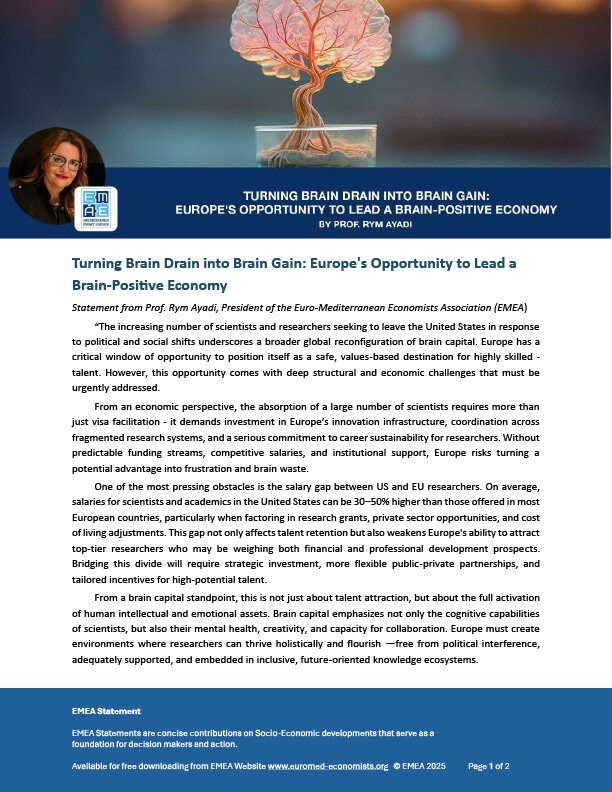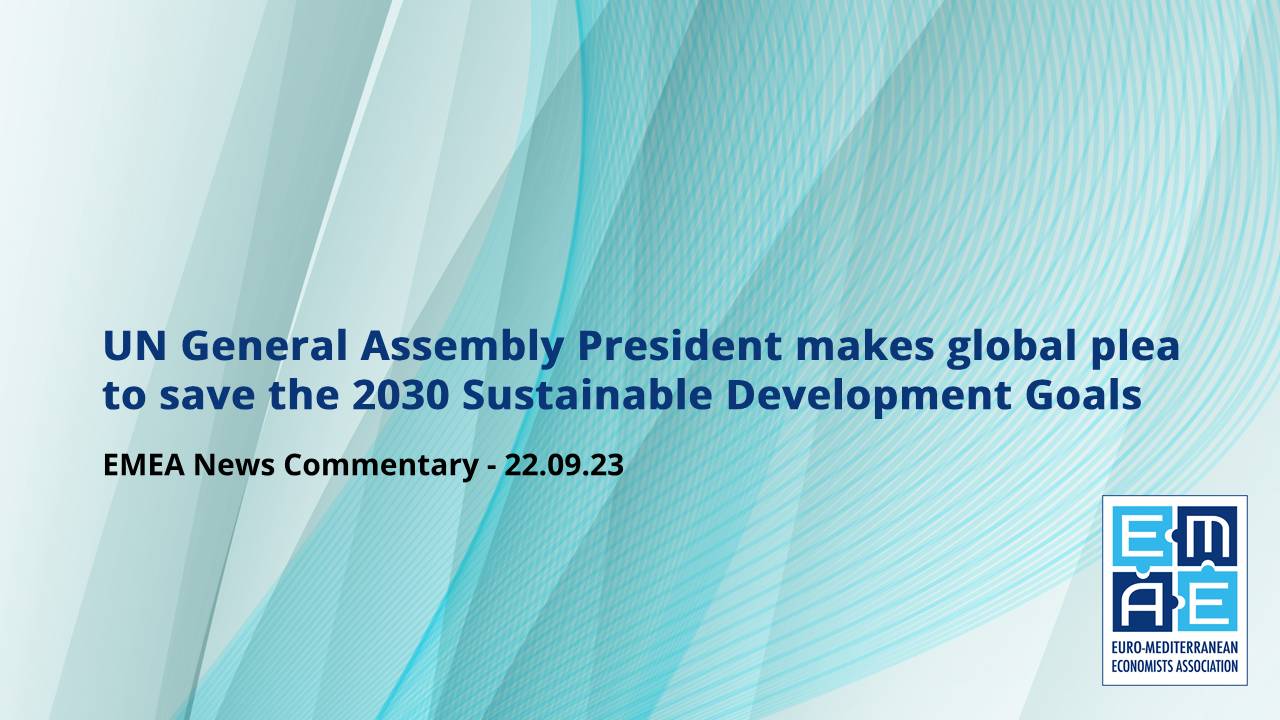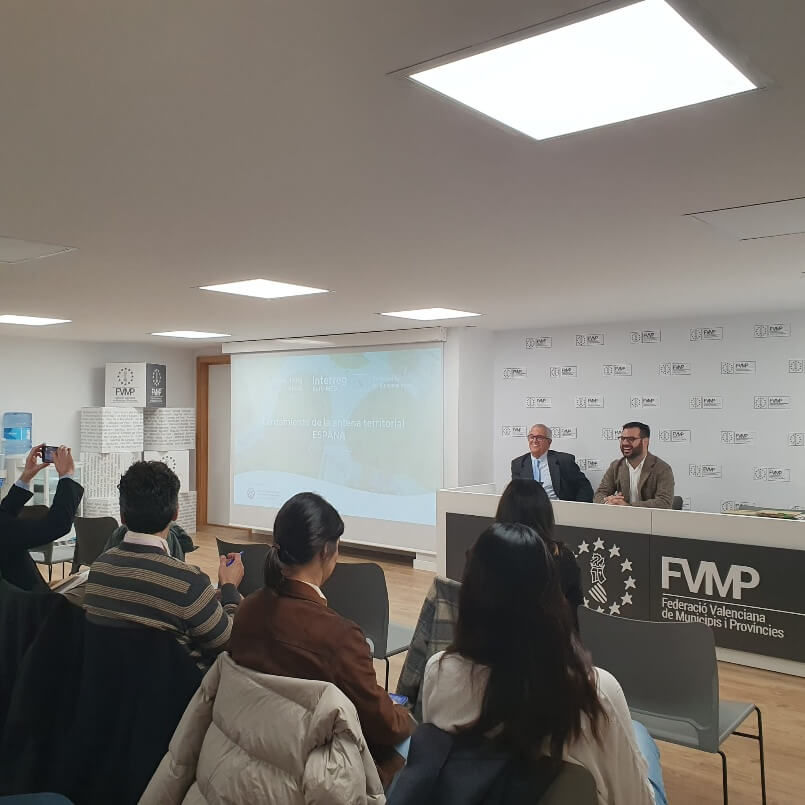This week marks the 78th session of the UN General Assembly in New York (18-22 September). Yet even before the event convened, alarm bells have been ringing about the big challenges the organisation is currently facing.
According to Mark Malloch-Brown, the President of the Open Society Foundations, the UN is “spluttering”, with “inertia and rivalries producing a dangerous breakdown of multilateralism.”
The global dashboard, as he puts it is “flashing red”. With climate records being smashed, the highest recorded average temperatures in thousands of years, devastating floods, military coups and takeovers, Malloch-Brown said confirmation of that gloomy picture will come at the two-day Sustainable Development Goals (SDGs) Summit which takes place on September 18 and 19.
The world was not on the right track if it intended to implement its 17 interlinked SDG objectives, he warned. “Out of 140 metrics by which the SDGs are measured, half are not on the desired trajectory and about one-third have stalled or gone into reverse.”
This made “the interinstitutional squabbles over the summit’s desired outcomes especially dismal,” he observed.
It’s been reported that the U.S. administration and its allies have baulked at calls in the Summit’s draft declaration for reform of the international financial system. Meanwhile, India and its allies have also been at odds over whether they should even make reference to the G20 in the aforementioned draft.
Malloch-Brown said that age old disputes, where rich world governments had continued to object to the UN straying into their territory “risk making this crucial SDG summit a flop.”
“That would be doubly disastrous: virtually dooming the goals to nonfulfillment and casting a heavy shadow over the U.N.’s Summit of the Future, billed as a once-in-a-generation opportunity to renew global governance,” he wrote.
And he stressed that, despite the UN’s architecture being built for a post-war world rather than today’s version of permanently shifting multipolarity “the U.N. system needs to find the versatility and nimbleness needed to marshal a consensus.”
Climate march sets the tone
Meanwhile, ahead of this Wednesday’s Climate Ambition Summit, campaigners from around the world gathered on Manhattan’s streets, calling for government action on global warming, reports the Financial Times.
It was the largest climate change demonstration in New York since before the Covid-19 pandemic, following the hottest summer on record.
The UN secretary-general António Guterres, the architect of this week’s Climate Summit, had warned in July that the world faced a new era of “global boiling”.
Campaigners, supported by more than 700 global climate organisations, want US President Joe Biden to stop issuing approvals for new fossil fuel projects.
The President was not scheduled to attend the climate-specific UN Summit, but he was due to promote “US interests and values” on issues ranging from climate change to global support for Ukraine, according to the Financial Times.
The Summit includes a mix of speakers, including Ugandan justice activist Vanessa Nakate, US billionaire Michael Bloomberg and new World Bank president Ajay Banga. They’ll be joined by executives from technology and clean energy companies, as well as numerous environment ministers from across the globe.
This UN’s general assembly and dedicated climate summit are the last major meetings of world leaders before December’s COP28 climate deliberations in Dubai.
The UN Intergovernmental Panel on Climate Change has previously said that humanity had the tools to curb and adapt to climate change, but that political “commitment” was a barrier to progress.
This might explain why, during recent multilateral meetings, world leaders have struggled to reach agreement on climate progress.
The FT, quoting Selwin Hart, the special adviser on climate action to the UN Secretary-General, said that this week’s gathering was intended to “showcase first-movers and doers” on actions both to slow climate change and to adapt to a warming planet.
“Those who have contributed the least [to climate change] are paying the heaviest price, so we are at a moment where it is absolutely clear that we need to do things with great urgency to accelerate the pace of decarbonisation, to keep the goals of the Paris agreement within reach,” Hart told reporters last week.
The United Nations Is Convening—and Spluttering (foreignpolicy.com)
New York climate march sets tone for week of UN talks | Financial Times (ft.com)
UN General Assembly, New York – Consilium (europa.eu)





